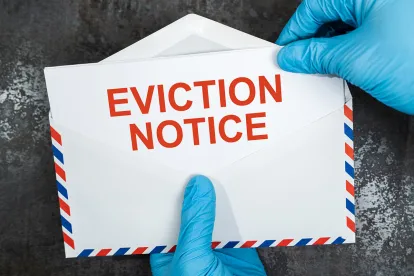Evictions are currently prohibited in Pennsylvania through April 30, 2020. The Supreme Court of Pennsylvania’s April 1, 2020 Second Supplemental Order prohibits evictions, ejectments, or other displacements from a residence for non-payment of rent or taxes, or a mortgage foreclosure.
Despite the ban, landlords are permitted to send termination notices during the moratorium period. Once the eviction ban is lifted, if a tenant remains in breach of the terms of their lease, a landlord will then be able to file an eviction or ejectment action.
In regard to commercial leases, force majeure clauses may apply to the COVID-19 crisis. That will depend on the terms of the lease agreement between the parties. There may be instances where a commercial tenant could refuse to pay rent during the pandemic claiming that an “act of god” excuses their performance. However, even if a tenant can validly refuse to pay rent now, a landlord may be able to seek back rent once the crisis concludes. Commercial landlords and tenants may want to consider short-term workouts to deal with either party’s inability to perform their respective obligations under the terms of a lease agreement.
The Supreme Court Order closes Pennsylvania courts through at least April 30, 2020. Some county courts are starting to extend that closure farther into May. The Supreme Court has the power to extend the statewide court closure date.
Federal legislation entitled the Rent and Mortgage Cancellation Act was just introduced, which seeks to cancel rental and home mortgage payments during the coronavirus pandemic. If passed, the bill would provide for full payment forgiveness, no accumulation of debt for renters or homeowners, and no negative effect on rental history or credit ratings. Additionally, landlords and mortgagees would have access to a relief fund to recoup funds lost due to the cancellations. Pennsylvania legislators are currently working on a bill to freeze rent for 3 months.
While landlords, renters, homeowners and mortgage companies are waiting to see what the next few months will bring, there are ways to protect your rights during this time. Maintain your records, communicate issues and concerns promptly, and reach out to a professional if you need assistance.



 />i
/>i

